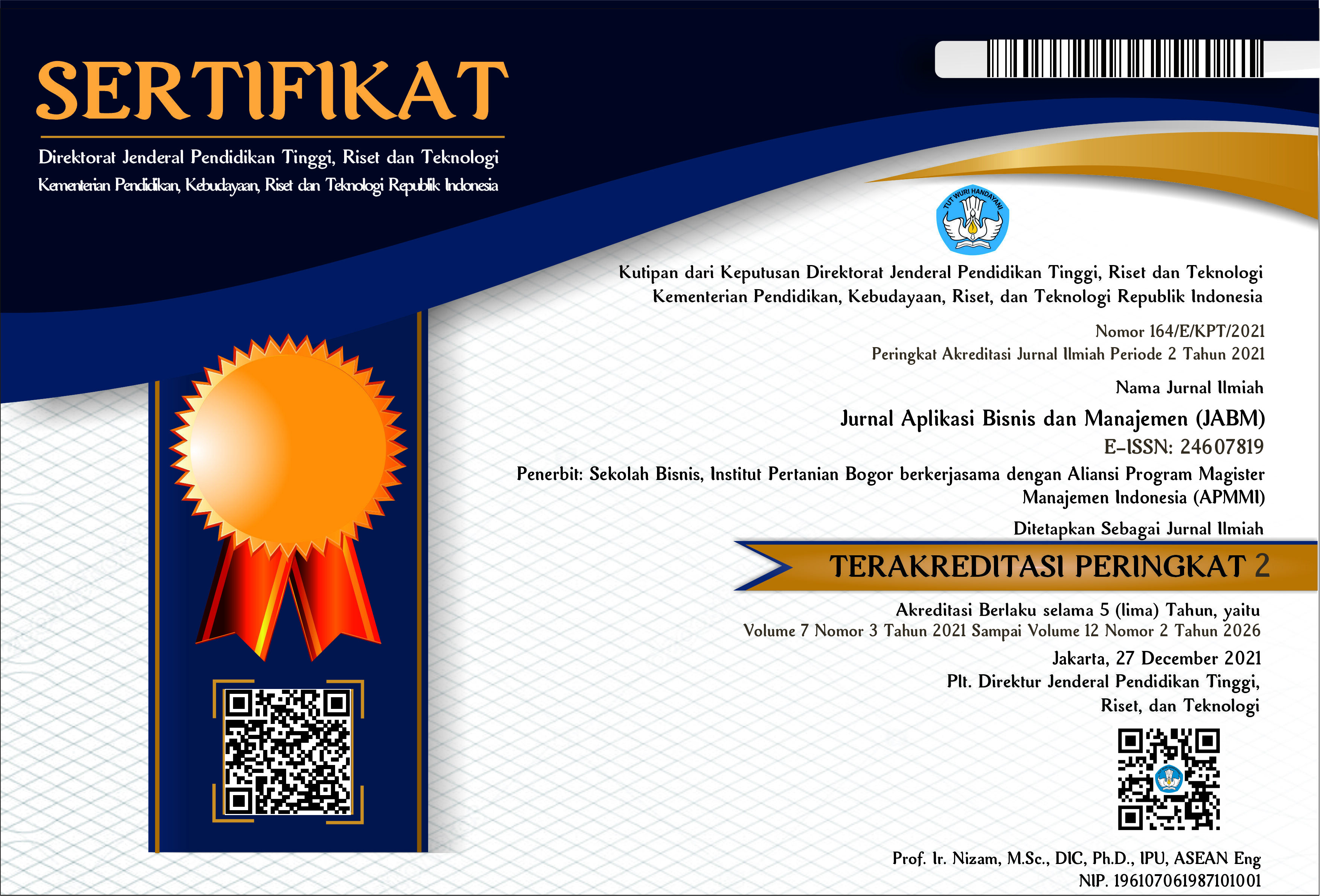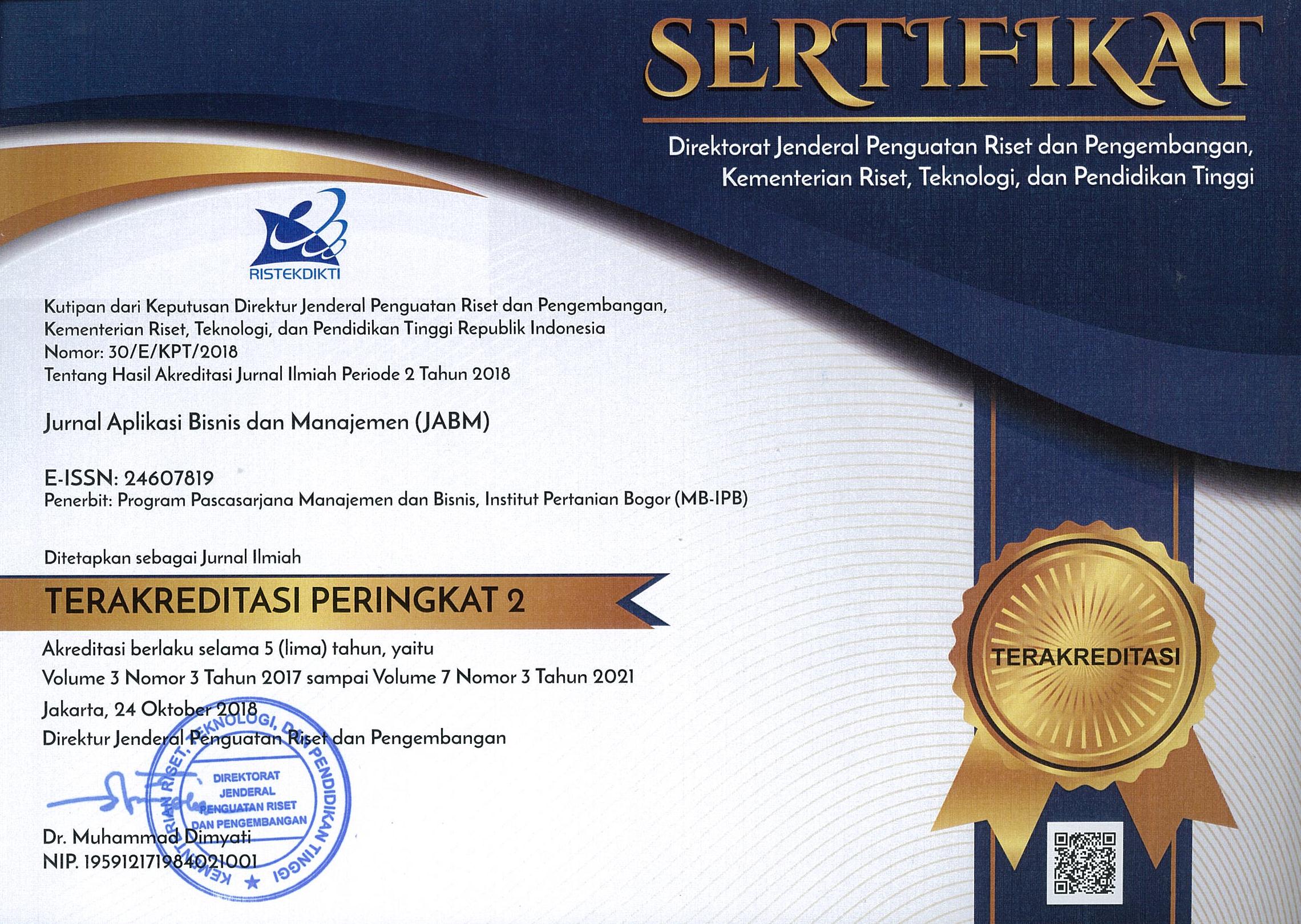How Do Executives Benefit From Investment Efficiency? Investigating The Use of Accounting Performance-Based Pay: Evidence From Indonesia
Abstract
Background: Investment efficiency is expected to mitigate agency problems in investment decision-making. However, the role of investment efficiency in accounting performance-based pay is less well-known.
Purpose: This study investigates the moderating effects of investment efficiency on the nexus between accounting performance and executive compensation, which is termed accounting performance-based pay. We predict that executives at firms with more investment efficiency will receive a higher accounting performance-based pay.
Design/methodology/approach: This study uses a sample comprising 888 firm-year observations of non-financial companies listed on the Indonesian Stock Exchange (IDX) from 2010 to 2018.
Finding/result: Using the level of investment efficiency and executive cash compensation as measures, we find that executive accounting performance-based pay significantly increases in investment-efficient firms. We also find that the association between investment efficiency and accounting pay-for-performance sensitivity is consistent with a robustness check using a different measure of investment efficiency.
Conclusion: Our findings suggest that Indonesian firms generally incorporate relative investment efficiency when designing executive compensation contracts.
Originality/value (state of the art): This study fills an important gap in the literature on the role of investment efficiency and the use of accounting performance-based pay to address empirical evidence of the incentive alignment effect of strategic decision-making.
Keywords: accounting performance-based pay, efficient use of resources, executive compensation, investment, investment efficiency







